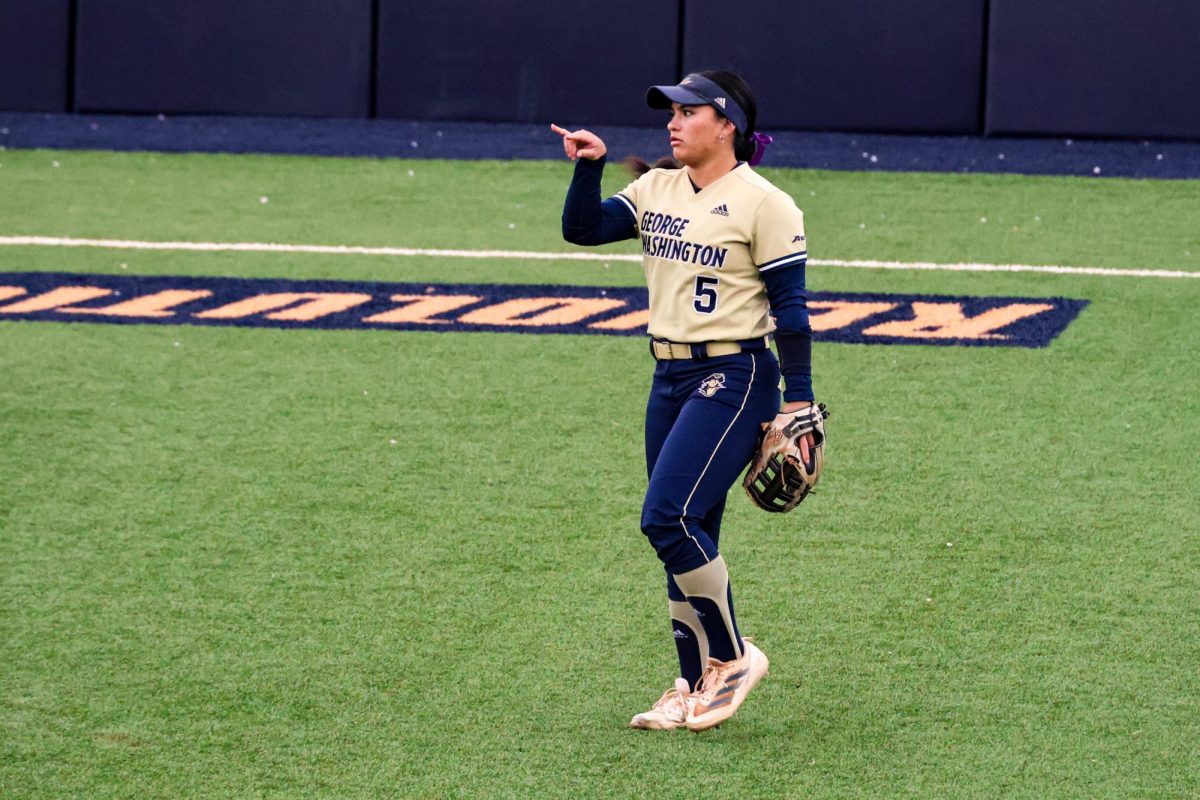Members of GW swim teams reported substantial hair loss and severe itching last week, after a mechanical glitch created a chemical imbalance in the Smith Center swimming pool, team members told The Hatchet.
Several athletes, who spoke to The Hatchet on the condition of anonymity because of a policy that prohibits athletes from speaking to the media without permission, said the problem lasted about five days, during which time they complained of what they believed to be inflated chlorine levels.
Chemical imbalances in the pool, which began on Oct. 21, were caused by “a glitch in the (chemical) monitoring system,” said Kirk Southworth, service coordinator for Winkler Pool Management, which monitors pool equipment for the University.
One swimmer said his teammates lost about 70 percent of their body hair. The athlete also said he “could hardly taste my breakfast” on Oct. 22 after feeling cotton-mouthed from the previous day’s practice.
“I don’t want to sound insensitive, but I look like a chemo patient,” the swimmer said. “It’s embarrassing: being in class with splotchy hair and having to constantly scratch yourself.” Another swimmer said he lost all of his arm hair and the hair on his teammates’ heads changed color and became thinner.
Southworth said last week’s pH levels were on the “low end and high end of what is acceptable.” He said chlorine levels were high, but declined to specify how high, only that it was “never dangerous.”
Robert Brodell, professor of internal medicine, dermatology section at Northeastern Ohio Universities’ College of Medicine, said hair loss is inconsistent with chlorine overexposure and high or low pH levels.
“Honestly, I have not seen or heard of hair loss in that situation,” said Brodell, who is unaffiliated with the GW incident. “But we can’t close our eyes to the obvious: If the whole team all lost their hair at the same time these fluctuations happened, there must be some explanation, but I honestly wouldn’t have predicted it.”
In January, Michigan State’s swim team experienced similar symptoms, which the school newspaper attributed to “chemical imbalances.”
Jason Wilson, assistant athletic director and facilities manager for the Smith Center, said he had not been aware of the problem until Tuesday night, when The Hatchet reached him for comment. Wilson emphasized that small fluctuations in chemical levels occur regularly, but one player said “this was not a small fluctuation.”
“We definitely regulate it – sometimes the levels are not at our ideal settings, but no one would be ever exposed to be something unsafe,” Wilson said Tuesday.
Assistant Director of Athletics Mary Jo Warner and head swim coach Dan Rhineheart both referred comment to Wilson.
The University employs Winkler Pool Management to make sure the automatic testing systems that monitor chemical levels are functioning properly. A school employee called Winkler last week after a filter’s alarm went off, though both automatic and manual reagent tests showed normal chemical levels. Further analysis at Winkler’s headquarters showed the pH levels to be undesirable.
They later found an “intermittently” faulty piece in the pool’s monitoring system and that the manual reagent tests were inaccurate, Southworth said.
Southworth said, “There were a number of things that happened in a short period that threw the chemical levels way out of whack.”
Winkler fixed the problem and Southworth said they continue to monitor the situation. Swimmers have reported much better conditions since Monday.
As part of next year’s Smith Center renovations, Wilson said the pool will undergo a “complete overhaul,” which will include new ventilation and plumbing systems.
Though Wilson said the pool’s ventilation system is “fully functional and within air quality standards,” ventilation issues have also been a concern among athletes. In response, coaches installed industrial fans during practice to create more air flow. Two swimmers who spoke with The Hatchet said they and others cough regularly while in the pool area.
The biggest concern for one swimmer was that there was no dialogue between the University administration and its athletes. The athlete said coaches were transparent and sympathetic, but the administration did not keep the team abreast of the situation. Wilson gave swimmers a formal apology late Wednesday, a swimmer said.
“I feel like the administration does not do a good job of communicating with athletes, and this is case in point,” the swimmer said before Wilson’s apology. “If the facilities manager didn’t know that chlorine levels were bad and had never heard of this then somewhere there is a communication breakdown. For all I know, they could be right on top of it but from our perspective we had no clue.”
After Wilson’s apology, the same swimmer was appreciative.
“I am thankful the administration took notice of the problem,” the swimmer said. “Hopefully there can be an open dialogue in the future.”
-Eric Roper and Alex Byers contributed to this report.







